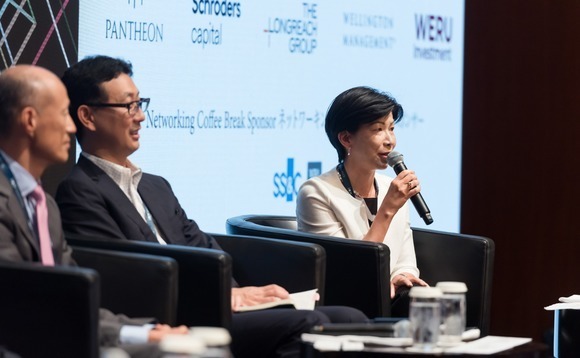
Japanese GPs should target incremental gains on ESG - AVCJ Forum

Japanese private equity firms should be very targeted in implementing environment, social, and governance (ESG) policies at the portfolio company level even if the payoffs are small and accumulate over time, the AVCJ Japan Forum heard.
One of the key risks is tackling ESG as a big theme and then either overwhelming or trivializing its integration into corporate strategies or, conversely, assuming that ESG is not as crucial for certain industries, panellists explained. Rather, investors should think about more specific and sustainable approaches to integration that make sense in terms of individual business models.
"We recommend starting with small steps, creating small successes to encourage everyone to continue the journey," said Kathy Matsui, a general partner at MPower Partners. She added that it is critical to recognise the ESG journey is a marathon rather than a sprint, and that a thorough understanding by internal and external stakeholders is necessary to drive long-term growth.
According to Katsuya Baba, a partner and chief administrative officer at Advantage Partners, while it is important to adopt a broader perspective on ESG, investors must think about why they are adopting certain initiatives, the implications in terms of returns, and the commitment required to strike a balance between overarching ESG goals and the needs of each company.
"For us, as we invest in cram school businesses, for instance, we used to wonder what implementing the ‘E' [in ESG] would mean. For instance, do we lower the temperature setting of air-conditioners in the classrooms by 1 degree?" Baba said. In fact, this kind of micromanagement is neither here nor there and loses significance in an ESG context, he continued.
Advantage attaches a higher value to tracking a portfolio company's carbon emissions. While high-load industries have regulations in place to curb emissions, in less regulated areas, private equity firms should consider what small measures can be adopted over time to create value, Baba said.
Giving the LP perspective, Masashi Kataoka, a general manager in the alternative investment department at Dai-ichi Life Insurance, contrasted his firm's approach to direct deals versus fund commitments. On the former, it engages "narrowly and deeply" when buying green bonds or making ESG-related impact investments in accordance with internal targets.
As an investor in funds, however, Dai-ichi Life often engages more "broadly and shallowly," sending out questionnaires on ESG policies and positioning. "It can be challenging to [extract value] from such initiatives but it is nevertheless one way to encourage ESG activities in the industry as a whole," Kataoka said.
When helping start-ups with ESG integration plans, MPower focuses on four key factors: diversity, data privacy and security, environment, and governance. These companies are asset-light, so carbon emissions tend to be minimal. However, Matsui stressed that there should be a basic awareness of carbon footprint given the reliance on data servers, which consume significant amounts of energy.
Meanwhile, NSSK, a specialist in mid-cap private equity investments, finds social and governance initiatives are relatively easy to address, but environmental issues are more complicated. Carbon neutrality has emerged as an overriding objective.
"Our goal is to achieve an aggregate 30% carbon emission reduction in all our portfolio companies by 2030, including both direct and indirect emissions. We've started detailed discussions with our portfolio companies to set this as an investment KPI [key performance indicator," said Shohei Akiyama, chief administrative officer at NSSK.
Akiyama added that, for ESG to gather momentum in Japanese private equity, senior management at portfolio companies must be committed to the cause. MPower's Matsui noted that ESG is often perceived as an unnecessary cost rather than an additive investment, so a change in mindset is required.
Latest News
Asian GPs slow implementation of ESG policies - survey
Asia-based private equity firms are assigning more dedicated resources to environment, social, and governance (ESG) programmes, but policy changes have slowed in the past 12 months, in part due to concerns raised internally and by LPs, according to a...
Singapore fintech start-up LXA gets $10m seed round
New Enterprise Associates (NEA) has led a USD 10m seed round for Singapore’s LXA, a financial technology start-up launched by a former Asia senior executive at The Blackstone Group.
India's InCred announces $60m round, claims unicorn status
Indian non-bank lender InCred Financial Services said it has received INR 5bn (USD 60m) at a valuation of at least USD 1bn from unnamed investors including “a global private equity fund.”
Insight leads $50m round for Australia's Roller
Insight Partners has led a USD 50m round for Australia’s Roller, a venue management software provider specializing in family fun parks.








